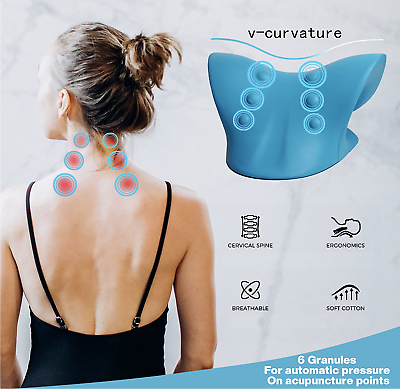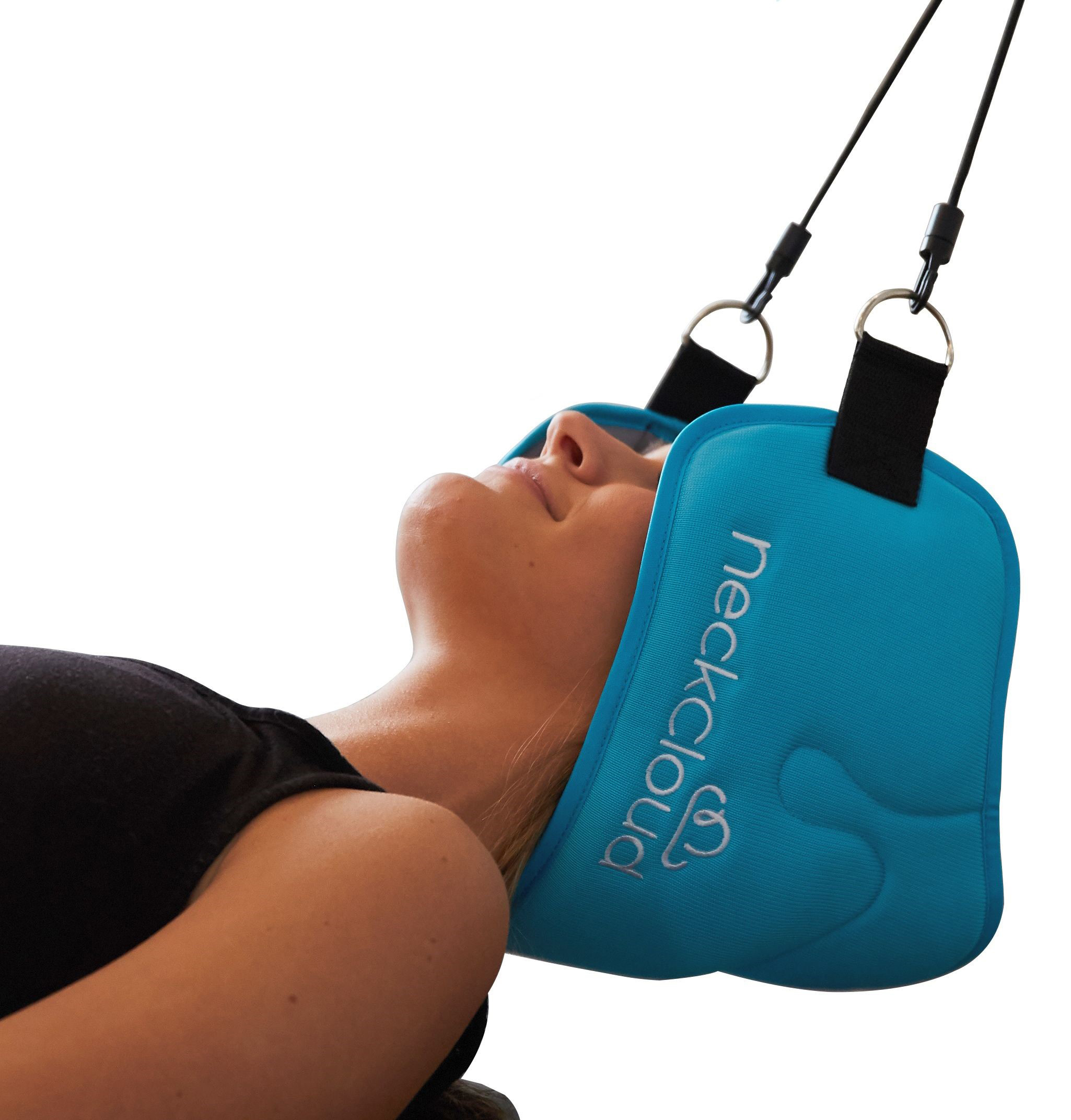Boost Your Stance and Lower Neck Discomfort with the Neck Cloud
Boost Your Stance and Lower Neck Discomfort with the Neck Cloud
Blog Article
The Effect of Tension on Neck Pain: Strategies for Lowering Stress and Discomfort
In today's hectic globe, it's obvious that stress and anxiety has actually ended up being a widespread variable in the beginning and worsening of neck discomfort. The intricate connection between stress and anxiety and muscle mass tension frequently leaves people looking for remedy for the discomfort that occurs. By discovering targeted approaches targeted at lowering tension and advertising leisure, one can start to resolve the origin causes of neck pain and work towards a much more balanced state of well-being. Join us on a journey to unravel the influence of stress on neck discomfort and find efficient ways to relieve discomfort and enhance overall lifestyle.
Recognizing Stress-Related Neck Pain
Neck pain is an usual complaint that can usually be credited to stress. Stress-related neck pain can manifest as tension, tightness, or discomfort in the neck and shoulder area. The link between anxiety and neck discomfort hinges on the body's physiological feedback to stress and anxiety, which can result in muscle mass tension and tightness in the neck muscular tissues. Chronic tension can cause persistent neck discomfort and intensify status quo like cervical spondylosis or muscle mass stress.

Identifying Common Stress Locations
Frequently experienced by people under tension, stress locations in the body can provide useful insights into the physical symptoms of mental stress. One usual tension location is the neck, where stress and anxiety commonly shows up literally. Stress frustrations, stiff neck muscular tissues, and restricted variety of motion prevail symptoms of stress-related neck tension. The shoulders are an additional usual location where tension collects. Stress and anxiety can create the muscular tissues in the shoulders to tighten, leading to discomfort and pain. Additionally, the upper back is prone to tension accumulation, particularly in people who experience persistent stress and anxiety. Poor pose and extended resting can exacerbate tension in this area. The jaw is also a typical area for stress-related stress, as lots of people squeeze their jaw or grind their teeth when stressed. Understanding these typical tension areas can help people acknowledge the physical signs of stress and take actions to address them prior to they escalate into persistent pain or pain.
Carrying Out Leisure Techniques
To successfully you can look here manage stress-related tension in the body, executing relaxation methods is essential. Leisure techniques are important devices for reducing neck pain caused by anxiety. Deep breathing exercises can aid soothe the mind and kick back stressful muscles in the neck and shoulders (neck cloud). Practicing mindfulness meditation can also be advantageous in reducing anxiety and promoting leisure. Modern muscle mass relaxation, where you methodically tense and after that loosen up different muscle groups, can launch built-up tension in the neck area. Furthermore, tasks like yoga and tai chi include both physical activity and leisure, making them effective practices for lowering tension and neck discomfort. Taking normal breaks throughout the day to stretch and unwind can stop muscle stiffness and tension from collecting. By incorporating these relaxation strategies into your day-to-day routine, you can assist take care of anxiety levels, minimize tension in the neck, and reduce pain connected with stress-induced neck discomfort.
Including Self-Care Practices
Incorporating self-care methods is necessary for maintaining general wellness and managing stress-related neck pain efficiently. Participating in regular physical activity, such as mild extending exercises or yoga, can help minimize stress in the neck and shoulders. Exercising excellent position throughout the day and taking constant breaks from prolonged resting or screen time can also protect against strain on the neck muscle mass.
Moreover, prioritizing adequate sleep and developing a consistent rest routine can add considerably to minimizing anxiety degrees and promoting relaxation. Creating a relaxing going to bed routine, such as reading a publication or taking a warm bathroom, can aid prepare the body and mind for restful rest. Furthermore, maintaining a well balanced diet regimen rich in nutrients and staying moisturized can support overall wellness and reduce swelling that may intensify neck pain.
Integrating mindfulness techniques, such as deep breathing exercises or reflection, can aid take care of stress and advertise relaxation. Taking time for oneself, involving in hobbies, and setting boundaries to protect individual time are additionally essential aspects of self-care that can add to reducing stress and reducing neck discomfort.
Seeking Expert Aid
Exactly how can individuals efficiently deal with consistent neck discomfort that is influencing their every day life and well-being? Seeking expert aid can be a crucial action in handling and minimizing neck pain. Consulting with healthcare professionals such as chiropractics physician, physical therapists, or orthopedic experts can supply valuable insights and customized therapy blog here strategies. These specialists check these guys out can conduct detailed analyses to identify the underlying reasons for neck discomfort and advise appropriate treatments.
Chiropractic practitioners focus on spinal adjustment techniques to improve placement and reduce tension in the neck area. Physiotherapists use targeted exercises and stretches to strengthen muscle mass, enhance versatility, and boost total neck feature. Orthopedic experts can offer innovative medical interventions such as shots or surgical choices for severe cases of neck discomfort.
Final Thought

Stress-related neck discomfort can manifest as tension, tightness, or pain in the neck and shoulder location. The link between stress and neck discomfort exists in the body's physical action to anxiety, which can result in muscular tissue tension and rigidity in the neck muscle mass. Stress frustrations, rigid neck muscle mass, and limited range of movement are common signs and symptoms of stress-related neck stress. By including these leisure methods into your day-to-day regimen, you can aid handle tension degrees, minimize stress in the neck, and alleviate pain associated with stress-induced neck discomfort.

Report this page